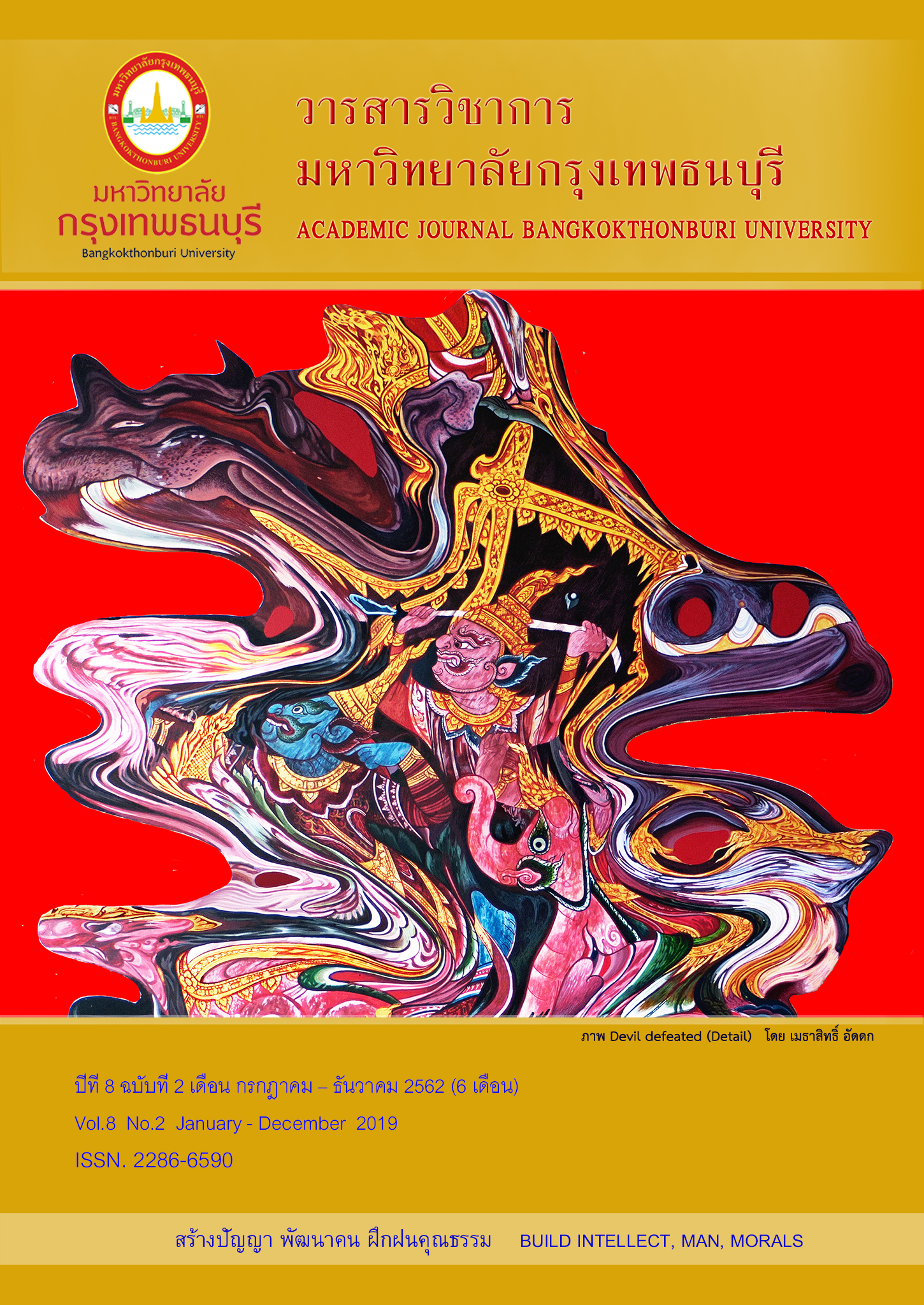Mindset, Happiness, and Job Dedication of Personals in the Tertiary Education Sector
Main Article Content
Abstract
This study focused on the relationship between mindset, job dedication, and happiness of workers in the tertiary education. Two mindsets were identified comprising of fixed mindset and growth mindset. 39,861 staff in 27 universities were sampling which were ready to join the survey of quality of life, happiness, engagement, and worklife balance in 2018-2019. Data were collected by Institute for Population and Social Research, Mahidol University and Thai Health Promotion Foundation. The findings show that (1) almost half of the sample have growth mindset. Growth mindset is over represented among academic personnel comparing to that of supporting staff. (2) Workers with a growth mindset are more dedicated to work than those with fixed mindset. Moreover, those with growth mindset are happier with their job than fixed-mindset workers. Nevertheless, unclear relationship between mindset and the overall happiness is found. This study shows the need of organizations to foster growth mindset of workers for their sustainable growth.
Article Details
References
Bellou, V. (2010). Organizational Culture as A Predictor of Job Satisfaction: The Role of Gender and Age. Career Development International, 15(1), 4-19.
Briñol, P., Petty, R. E., & Barden, J. (2007). Happiness Versus Sadness as A Determinant of Thought Confidence in Persuasion: A self-Validation Analysis. Journal of Personality and Social Psychology, 93(5), 711-727.
Chan, D. W. (2012). Life Satisfaction, Happiness, And The Growth Mindset of Healthy And Unhealthy Perfectionists Among Hong Kong Chinese Gifted Students. Roeper Review, 34(4), 224-233.
Davenport, T. H., Thomas, R. J., & Cantrell, S. (2002). The Mysterious Art and Sciences of Knowledge-Worker Performance. MIT Sloan Management Review, 39(2), 23-30.
Dweck, C. S. (2008). Mindset: The New Psychology of Success. New York: Random House.
Dweck, C. S. (2009). Developing Talent Through a Growth Mindset. Olympic Coach, 21(1) , 4–7.
Dweck, C. (2016). What Having A “Growth Mindset” Actually Means. Harvard Business Review, 13, 213-226.
Eversole, B. A., Venneberg, D. L., & Crowder, C. L. (2012). Creating a Flexible Organizational Culture to Attract and Retain Talented Workers Across Generations. Advances in Developing Human Resources, 14(4), 607-625.
Holmes, N. (2017). Two Mindset [Graphic]. Mindsetworks. Retrieved from https://www.mindsetworks. com/science/Impact
Masron, T. A., Ahmad, Z., & Rahim, N. B. (2012). Key Performance Indicators VS Key Intangible Performance among Academic Staff: A Case Study of A Public University in Malaysia. Procedia-Social and Behavioral Sciences, 56, 494-503.
Nakwiboonwong, S. (2016). Preferable Functional Competency of Textile and Garment Industrial Technicians as Needed by Enterprises in Bangkok Metropolis. Academic Journal Bangkokthonburi University, 5(1), 59-67.
O’Brien, K., & Lomas, T. (2017). Developing a Growth Mindset through Outdoor Personal Development: Can an Intervention Underpinned by Psychology Increase the Impact of an Outdoor Learning Course for Young People?. Journal of Adventure Education and Outdoor Learning, 17(2), 133-147.
Thongmeesri, S. & Patpimpakom, P. (2016). Factors Affecting Private School Teachers’ in Working Performance in Bangkok Metropolitan. Academic Journal Bangkokthonburi University, 5(2), 84-91.


